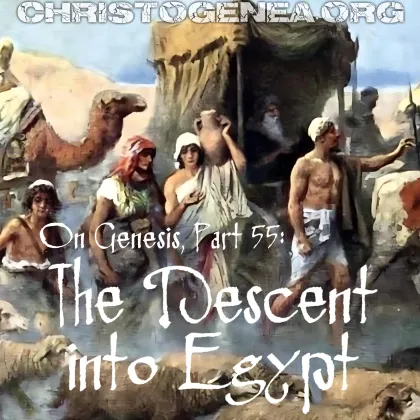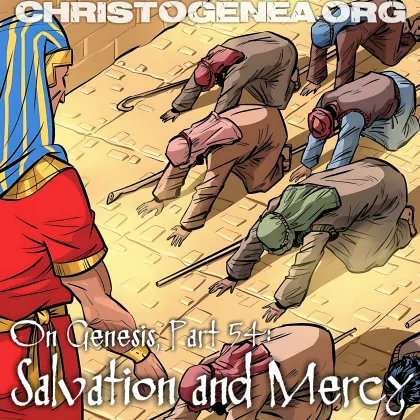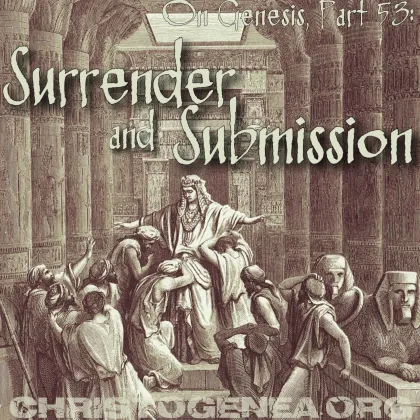On Genesis, Part 55: The Descent into Egypt

On Genesis, Part 55: The Descent into Egypt
As we may have already stated too frequently over these past several presentations in this Genesis commentary, we hope to have illustrated all of the ways in which Joseph was a prophetic type for Yahshua Christ, and the salvation of the children of Israel which is promised in Christ. However even more parallels may be made in this regard, and other avenues may be explored. Here, the children of Israel attained salvation from the famine because they had obeyed a worldly ruler, but even if they did not know it at the time, that ruler was Joseph their brother.
Then, while they were indeed preserved in Egypt, at the same time, and unbeknownst to Joseph himself, they were also being led into captivity in fulfillment of the words which Yahweh had spoken to Abraham in Genesis chapter 15 where we read: “13 And he said unto Abram, Know of a surety that thy seed shall be a stranger in a land that is not theirs, and shall serve them; and they shall afflict them four hundred years; 14 And also that nation, whom they shall serve, will I judge: and afterward shall they come out with great substance.”








 Please click here for our mailing list sign-up page.
Please click here for our mailing list sign-up page.








Recent comments